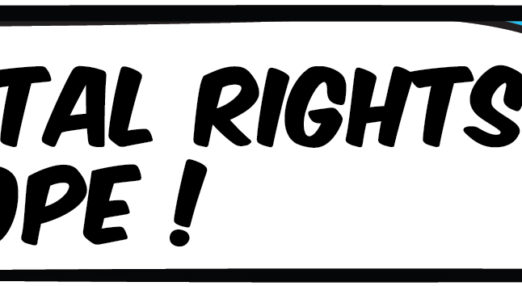Freedom of expression
Filter by...
-

Macedonia: Massive surveillance revelation: 20 000 people wiretapped
On 10 February, EDRi-member Metamorphosis, expressed grave concern about the publicly announced allegations of mass and unauthorised surveillance of citizens. Invasions of privacy directly affect freedom of expression in Macedonia, and fuel the overall climate of fear and silence. On 9 February 2015, the Macedonian opposition leader Zoran Zaev held a press conference in Skopje, […]
Read more
-

Spanish Citizens’ Security Bill: Many restrictions, few freedoms
In summer 2014, the EDRi-gram reported on the Spanish bill on the Protection of Citizens’ Security, shedding light on some of its most controversial measures. In December 2014, the Spanish Congress passed the Citizens’ Security bill by 181 votes to 141. Now, the bill will be discussed in the Senate until the end of March […]
Read more
-

EDRi paper for the Council of Europe: “Human Rights Online”
EDRi drafted an expert paper on “Human Rights Violations Online” to offer a practical backdrop to the Guide to Human Rights for Internet users adopted by Council of Europe on 16 April 2014. The Guide informs readers about what online rights and freedoms mean in practice, how they can be relied and acted upon and […]
Read more
-

EDRi participates in UNESCO study on Internet related issues
UNESCO ran a major consultation on “Internet related issues” which closed on November the 30th. The areas covered were fourfold: access to information and knowledge, freedom of expression, privacy, and ethical dimensions of the information society. While the scope of this consultation was breathtakingly broad, UNESCO should be applauded for at least acknowledging that all […]
Read more
-

Macedonian investigative magazine fined in defamation case
On 27 September, 2014, the Skopje Court of Appeals, Macedonia, confirmed the decision of a lower court, and ordered a critical independent magazine “Fokus” to pay a nearly ten thousand euro fine to a high government official for defamation. The ruling was another setback to country’s media freedom. Sasho Mijalkov, the Director of the Security […]
Read more
-

The Turkish government tightens its grip over the Internet
On 8 September 2014, the Turkish parliament passed an amendment to the already draconian Internet law. The amendment allows the Turkish Telecommunication Authority (TIB) to block (without a court order) any website that appears to threaten “national security or public order”. Internet Service Providers (ISPs) are required to execute the blocking order of the TIB […]
Read more
-

Online freedoms in Serbia still under threat, analysis shows
SHARE Foundation, an organisation dedicated to protecting digital rights in Serbia, analysed the state of online media freedoms in the country. Examples of technical attacks on media websites, threats and insults to online journalists show a worrying trend of pressure in the digital environment. During the devastating floods that hit Serbia and the region in […]
Read more
-

Ukraine: Sanctions against Russia to result in media censorship?
On 12 August, the Ukrainian parliament (Verkhovna Rada) approved in first reading a draft law (No. 4453) to impose sanctions on Russian companies and individuals over their alleged support and financing of separatism in Ukraine. The draft law included provisions to allow the Ukrainian National Security and Defence Council (RNBO) to shut down or block […]
Read more
-

Spain: Why you should care about the Citizens’ Security Bill
On 11 July 2014, the Spanish Council of Ministers adopted the Bill on the Protection of Citizens’ Security. The draft law comes under the authority of the Ministry of Interior which, after “hearing” the opinions of several public authorities and civil society in response to a preliminary text, adopted the bill. The legislation is intended […]
Read more
-
Turkey: Highest court rules YouTube ban violates freedom of speech
Turkey’s highest court ruled on 29 May 2014 that access to video-sharing site YouTube has to be restored. A brief decision published on the court’s website stated that the block was unconstitutional and violated individual rights and freedom of expression. On 3 June the access to the site was finally restored. Until now Prime Minister Recep […]
Read more
-
EC adopts Guidelines on Freedom of Expression Online and Offline
The Council of the European Union adopted, to very little fanfare, an extensive document on freedom of expression on 12 May. The document seeks to identify and clarify a range of principles with regard to freedom of communication. In doing so, the Foreign Affairs Council has adopted a text of unusual clarity and scope which […]
Read more
-
Finishing my internship with EDRi
The last three months have provided a great opportunity to get first-hand experience observing digital policy in the European decision-making process. I have worked on a number of topics and assisted with the launch of the WePromise.eu campaign. By far the most memorable (and successful) thing I’ve worked on has been the Telecoms Single Market […]
Read more
